#Repubblica
Text
Rispetto
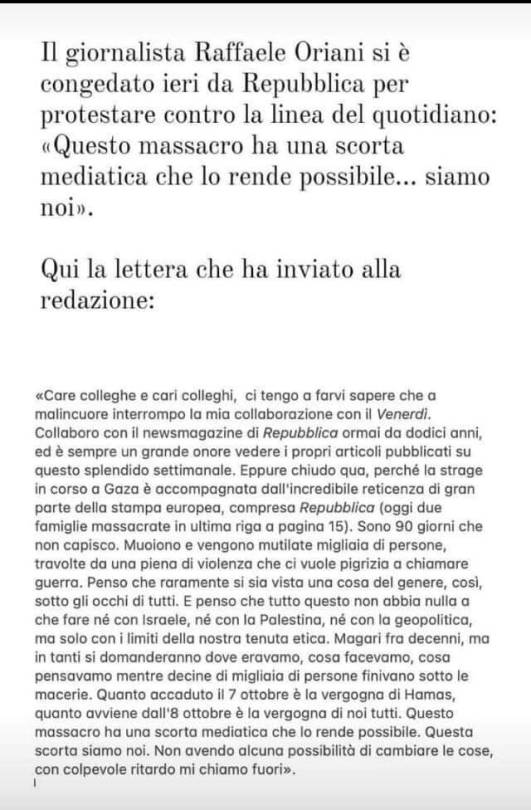
9 notes
·
View notes
Text
Roma, Piazza Della Repubblica.
Italy 🇮🇹 !.
#Roma#italia#Italy#piazza#Repubblica#beautiful places#Beautiful destination#Magic#Rome#downfall#downfalldestiny#life#Night
57 notes
·
View notes
Text
Ah... solo un video...

Chiaro... cosa imbarazzi l'IDF è un solo un video... se siete stati chiusi in una caverna ad ascoltare solo Mentana, Mieli, Gramellini, Giannini...
6 notes
·
View notes
Text
LA BIDELLA PENDOLARE
Su Repubblica hanno raccontato la storia poco verosimile della bidella felice di fare ogni giorno 800 chilometri in treno, tanto per dare nuova linfa alla retorica contro i percettori del reddito di cittadinanza, che ovviamente dovrebbero prendere esempio.
Domani racconteranno l'edificante storia del cosmonauta Giuseppe. Sulla stazione spaziale non c'era posto, quindi Giuseppe fa il pendolare spazio-Terra ogni 24 ore, grazie a un costosissimo abbonamento mensile per viaggiare su una navicella di Elon Musk, che in cambio gli ha concesso il profilo verificato su Twitter.
FINE
[L'Ideota]
50 notes
·
View notes
Text
Mahmood for "Il Venerdì" di Repubblica (14.10.2022)
MILAN. He looks at (Marcello) Mastroianni's portrait, dressed in white, at seaside, on the cover of the first "Venerdì di Repubblica", October 1987.
"I would like to go back in time, to understand how it was back then. In 35 years everything's changed, really everything. At that time a singer, an actor, a song, a movie lasted years." [...]
He knows well that success, even if flaming, can be such a fleeting thing: "A song lasts two months; every four (months) there's a new 'phenomenon'. Everything is a lot less romantic," he says while fans surround him for a selfie in a cafè (his sweatshirt and dark sunglasses didn't work as a disguise).
"I try not to sacrifice the magic, not giving in to this robotic mechanism.
[...]The feeling is that nowadays people want to do this job just as a mean to appear. We're prisoners in a mechanism that doesn't allow us any truce, that doesn't concede us any time."
Mahmood tries to deal with success in a smart way. On the "coming out" he put a definite word ages ago: "(coming out) is done by people who hid until that moment, I've always been this way [he didn't hide anything]."
He converses with his fans through his socials, every day. He encouraged them, with his passport and electoral card, to show up at polling booths. "Then it went how it went," he grumbles. "But we live in democracy, it's fair. I thought: you need to reach the lowest point to rise up again. Because it can't get worse than this? Can it? Oh my god, how many votes did (she) get? How many people even from the LGBT+ community voted for her?" [...]
"Mahmood" the docu-movie is an intimate portrait, the tale of his life between Milan and Egypt, lingering very little on his international success, zero images of his "celebrity life" [...]
"It didn't make sense, putting that stuff in," he explains. "It's something that came afterwards, with time. Fashion didn't actively contribute to my formation, it's just a consequence of success - by the way, tomorrow I have to go to other fashion shows, Paris Fashion Week. Then I must get away from all of that, I'm getting too distracted..."
Q: What did you want to say with this docu-movie?
M: How everything started, how that seed got planted in my mind, a passion that became an obsession... more... always more...a frenzy...
I looked for music schools by myself, checking on Google. The only feasible one was in Baggio, an hour and a half away from my home in Milan, hard to reach with public transportation - me, a kid, all by myself, thrice a week. But it was my reason to live. I wanted to show that (in the movie). And then my relationship with my family, crucial, and with my friends. On socials and on tv that doesn't get through. Perhaps even in the movie itself it's an incomplete aspect, but at least you can get an idea of how I grew up.
Q: You talk about how, as a kid, you used to get away from reality: "I had beautiful, amazing day dreams..."
M: I lived in a parallel world. Sometimes I couldn't even follow other people's conversations. It's hinted in a scene, shot by my mother in pre-school: "Ale look here." I turn, look at her, but actually I can't see her, I'm somewhere else. It still happens to me sometimes. Every once in a while I separate myself; it's a self-defense mechanism that connects me with other worlds, where I can picture what I really imagine and think about. Just like younger Ale. When I was a kid it was a storage room, now it's songs.
Q: The storage room?
M: Exactly! I used to lock myself in the storage room, a room without windows; on the door I had hung a drawing with the word "Podilandia". My mother every once in a while checked on me: "Are you hungry?". Inside there I had built my castles, I connected them all with strings. I thought they were real. I put everyone to bed when I was getting out, I covered them with a fake bed sheet, made of tissues. Crazy, for real! Every once in a while I opened the door, to check if everything was in order, if maybe instead of sleeping they were making a mess.
Q: Later on you'd harshly blame yourself for that: refusal of reality as a form of being selfish.
M: Selfish is a strong word, protection more likely. I felt good in my own company, my mind could rest.
Q: You grew up dealing with a sort of self-anlysis that in the end was productive.
M: When I was a kid I wasn't aware of that, it's something I've understood once I was an adult. I just wanted to protect myself, my mom took care of the rest...
Q:...she is a crucial character in this documentary.
M: She's actually the protagonist, extremely good, spontaneous, beautiful. I'd never have expected her to be so herself in front of cameras. She can't lie, if she tells you something - in the movie as in life -, she does so reliving that moment with complete emotional involvement. She relates 100% with the story, then she stops herself or gets too emotional when the memory gets too personal or too deep. I would like, some day, to be just as spontenous. I'm working on it.
Q: Were you able to confide in her when you were a kid? Was she more of a mother or a friend?
M: Noooo, friend? Mother 100%. That form of confidence comes later, in my case around the time I was 22. Mine was a long adolescence, I had a repulsion towards adulthood, I wanted my privacy, my space. As long as you depend on your mother, you cannot get on her same level.
Q: After the first achievements, listening to your songs your mother says "He looked content, but maybe he wasn't truly."
M: I was, actually. I created my own worlds not because I wanted to be content, but because I was content. I can't remember any sad moment in my childhood. All thanks to a perfect mother. It's just normal that in the beginning she considered my dream a waste of energy and money, she was just scared I'd get hurt.
Q: Has she ever let you on the anxiety and stress your father's abandonment must have caused her?
M: Never. When he came to take me for the weekend she, -even if worried -, let me go quietly. Twice, in summer, when I was 8 and 12 she let me go to Egypt, even though my uncles begged her not to [...]
Q: What do you remember about those trips in Egypt?
M: I would have preferred staying home, playing with my cousins. Or going to Orosei, like every Summer. But at Cairo I had a great time, I got to know my cousins and aunts, I got to visit amazing places. We would go home and lay mats to pray in the Mecca's direction, then they would force me to drink some disgusting mango smoothies. We would on the Nile on a boat, - dinner and a some belly dance show -, on the Red Sea, in the desert on a camel or a horse. My father had a beautiful girlfriend, Asma. She would take me around the City, in cafés: in the beginning I didn't really like her, she was too proud and haughty, but then we became friends.
During the second trip I got to know my little brother, - I have a sister, too, born later on.
My father, too, was really handsome, now he's got a bit heavier. A ladies man, lots of charisma, always happy, always with a smile, someone who can charm people.
Q: You were five when your father went away. Was that the starting point of your insecurities?
M: It was like nothing had happened to be honest, even if any time I say that, it sounds weird. Mom took me to a therapist, that confirmed I wasn't suffering from any issue. Then my father, during the time he stayed in Milan, came to get me every weekend. Did I detach myself to protect myself? I don't know. But even there, it was all thanks to my mother: he really put her through a lot! but she never said anything bad about him! she never told me anything! She sacrificied her entire life to work and raise me. And sometimes I feel guilty about that.
Q: Soldi, that surpassed 500 million streams and 100 million views on youtube, is a song directed to your father, almost like you wanted to get the attention of that absent parent that only called to ask for money.
M: I didn't write that to get even (with him), I was just telling something, stream of consciusness, the self-analysis we were talking about earlier, live those situations again while singing about them, withouth a reason, without malice. I wished he'd never listened to it.
Q: And instead?
M: He listened to it, indeed! He didn't take that well. He even threatened me to go on television to tell his version of it.
Q: How's your relationship now?
M: I haven't heard from him in a long time...
Q: You, aware or not, have a certain melody in your voice, that's similar to that middle eastern music, that was pretty evident during that Sabri Aleel performance at Notte della Taranta, a lot slower and dreamier version of an egyptian dance song.
M: My father, in the car, even here in Milan, made me listen to his favorite singers. I didn't like them, I used to tell him: "Come on, dad, switch it up!" they sounded all the same. Today, listening to them again, I get so emotional, same it happened with Sabri Aleel. My arabic pronunciation is anything but good, I asked for help to anyone I know, including my barber Aziz and my cousin's egyptian friend.
Q: Insecurity is a fixed point in your movie. When you were already singing songs likely to get successful, you'd say: "I'm embarrassed doing this!" where 'this' is, in fact, songs.
M: Oh my god, yes, I should have cut that scene. But yeah, they were bad songs, like "La notte ti adora", the first one they gave me to sing, when I still didn't write, so trashy [he sings it acapella, he's so good].
But I had to understand how to start and where I was headed. Look, I tried everything. The last thing I wanted was to go back making Cappuccini.
Q: Mamma Anna says: "He never talked about his pain, I found everything out through songs."
M: Being able to only write about the truth was a work that took at least two years. At the beginning I wrote sort of "cover" lyrics to muddy the waters, not to actually show myself. When I started doing that, even she was surprised.
Q: The X Factor elimination (then he was pulled in again), in 2012 must have been hard for the both of you.
M: The saddest and hardest thing in my life. I was 18, I had never cried that much, and then the following week I had my high school graduation, - tears fell on my books... I thought: maybe it's not meant to be. It was the 40th door closed in my face. I went back working in my cousin's café, 6am to 12pm, so I had the free afternoon to go to CPM, the music school. There I started writing songs, starting again as the worst in my class.
Q: Lots of doors closed, but also lots of success in a really crowded moment in the pop music.
M: 4th at Sanremo Giovani, with "Dimentica" (2016) at 25. The prior Summer, from Sardinia, I signed up for Area Sanremo: I paid for the train ticket and B&B myself, and I slept on the couch because the two friends I took with me from Milan, slept on the bed; I attended Ivano Fossati and Mauro Pagani classes; it was the time I was obsessed with song writers, after binging on Stevie Wonder, Ray Charles and Fugees. Carmen Consoli had just published "L'abitudine di Tornare", an album that meant a lot to me.
After many hardships and labels that pushed me into listening to the radio more, to understand in what direction I should go, I started writing for others. The first, "Nero Bali" for Michele Bravi, Elodie & Gué Pequeno, then "Hola" for Mengoni and right after my first successful songs, like "Gioventù Bruciata" that won Sanremo Giovani in 2018. "Soldi", born around that time, stayed in the drawer. Luckily: it was the song that won the Festival the following year.
Same thing happened with "Brividi": like I hadn't the faintest idea I'd go back to Sanremo, with Blanco and win again! I thought after "Soldi" I could only do worse.
[...] Q: The usual insecurity...
M: ... less chronic starting from this Summer. There's been a change, I'm forcing myself to be more positive. During these past few years lots of good things happened to me, but I always put myself down. I've decided to be more calm, now. It's an effort I have to make. Family lesson: feet on the ground, less expectations you have, less painful the fall will be. And it's not just about music, also low blows from your friends... well, let's not talk about that... I'm learning to prioritize the really important things.
Q: You might not even have had time for that. Do you manage to keep your private and public life in balance?
M: Yesterday I got some good news: they'll give me a bit of time to write. When you can't do it anymore, you need to ask for help. It's what I did. I was losing my eyebrows due to stress from my third tour and Sanremo and Eurovision, I pushed myself too hard...
But it's understandable, I'm young, I still have lot to do. But writing requires quiet, and I need to travel, take some time for myself.
Q: The flat in the skyscraper in Milan that burnt in 2021 Summer: another low blow.
M: It was my first rented house [now he's bought one], first time away from my mother, first little parties with friends... I'd been living there for a year...so traumatic... I truly went to therapy at that point. I had the feeling that everything I had built had collapsed in a night: I went back to mom. It was like starting back again. And you have no idea how difficult it was finding a new place: we don't rent to artists, you're too loud.
Q: The impression, watching the documentary, is that you live in a pain that you're not able to push away and with which, with some resignation, you live together.
M: Inside every one of us there's some pain, always. Without it, life would just be a pretense. It's important to know it and save it, I need it to grow up and react. I don't want to erase it, - just live and learn to manage it, that pain."
#mahmood#italian tag#long post#il venerdi#il venerdi di repubblica#repubblica#interview#translated interview
50 notes
·
View notes
Text
L’elezione di Gronchi non era ben vista dagli americani
Il biennio 1955-56 è comunemente considerato come un anno di svolta nel contesto politico internazionale: causò grandi capovolgimenti in ogni scenario inserito nella logica della guerra fredda. In Italia, il progressivo esaurirsi della formula di governo centrista, in concomitanza con la distensione internazionale e poi della rivoluzione ungherese, faceva già prevedere un imminente scivolamento a…

View On WordPress
#1955#1960#Claudio Molinari#Fernando Tambroni#Giovanni Gronchi#Interni#ministro#polizia#Presidente#Repubblica#segreti#servizi#SIFAR#Uar#USA
2 notes
·
View notes
Photo
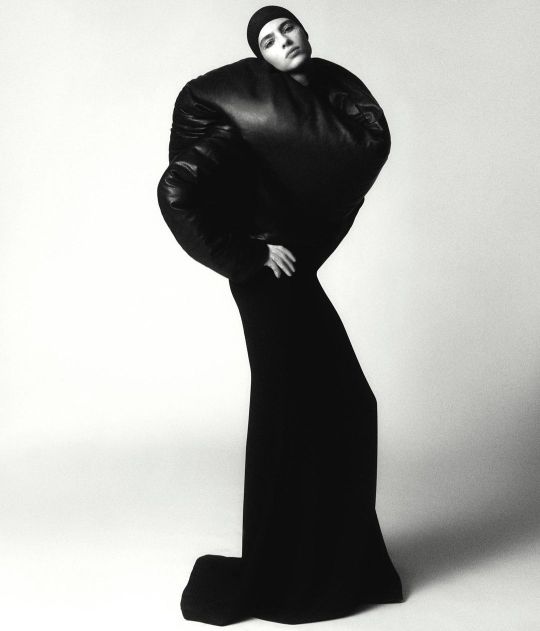
Loli Bahia for Repubblica Italia December 2022
Photographer Robin Galiegue
Fashion Editor/Stylist Jacob Kjeldgaard
Makeup Artist Lucy Bridge
Hair Stylist Eugene Souleiman
Casting Director Piergiorgio
Newest Cool on Instagram
#newest cool#newestcool#loli bahia#fashion editorial#modest high fashion#modest look#balaclava#babushka#headscarf#headcover#repubblica#repubblica italia#French model#repubblica magazine#modest outfit#modest style#hijab#neckerchief#headpiece#fashion photography#vogue editorial#fashion shoot#fashion photoshoot#archive fashion#archive moodboard#artsy photography#artsy fashion#artsy
21 notes
·
View notes
Text




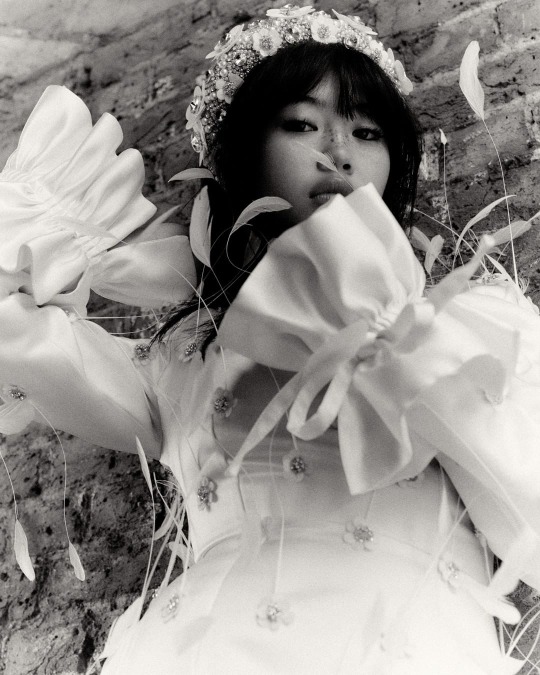

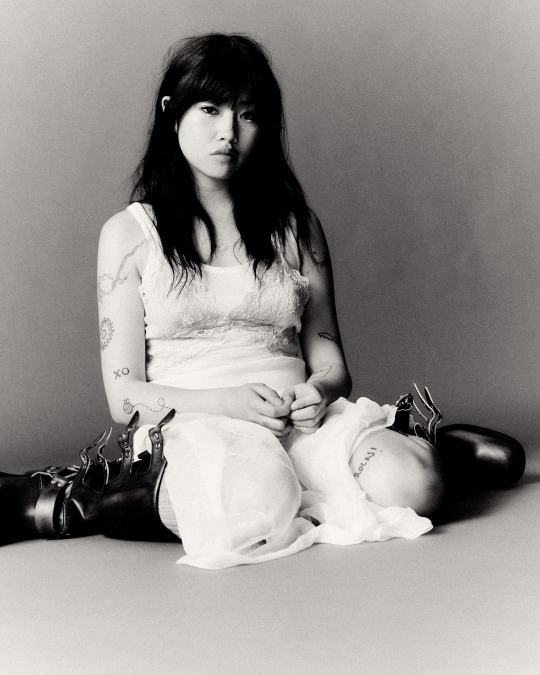
Beabadoobee for D.Repubblicait for the Music Issue 2022
#repubblica#beabadoobee moodboard#beabadoobee layouts#beabadoobee#beabadoobee icons#artist#london artist#musician#cover girl#magazines#magazine#editorial#editorials#asian beauty#woman#women#alt girl#girl#photography#photoshoot#photoblog#photoart#aesthetic#aesthetic girl#aesthetic grunge#dirty hit
99 notes
·
View notes
Text
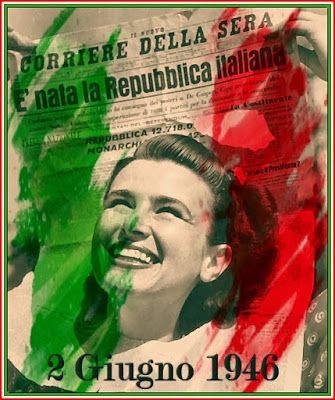
Due giugno quarantasei
il popolo italiano
vota per la Repubblica
non vuole più un sovrano.
Vota il popolo intero
finalmente anche le donne.
L’italia repubblicana
è nata con le gonne.
Democrazia vuol dire
popolo che decide
che pensa, sceglie, elegge
chi sono le sue guide.
L’italia da oggi unita
alza la sua bandiera
col bianco rosso e verde
ride alla primavera.
Anna Sarfatti
#pensieri per la testa#persa tra i miei pensieri#poesia#filastrocca#ricordi#ricordo#Italia#repubblica#repubblica italiana#2 giugno#2 giugno 1946#donne#voto#suffragio universale#assemblea costituente#festa della repubblica#democrazia#Anna Sarfatti
13 notes
·
View notes
Text
Il periodo storico della presidenza Cossiga si connota per l’entrata in crisi della formula pentapartitica
4.2.3. L’ultimo CossigaIl 9 giugno 1991, si tiene la consultazione referendaria sull’abrogazione della possibilità di esprimere la preferenza per più di un candidato, in occasione del quale prevalgono i voti a favore dell’introduzione della preferenza unica (vota “sì” il 95,6% dei cittadini e partecipa al voto il 62,5% degli aventi diritto), malgrado gli inviti di Bettino Craxi, Umberto Bossi e…
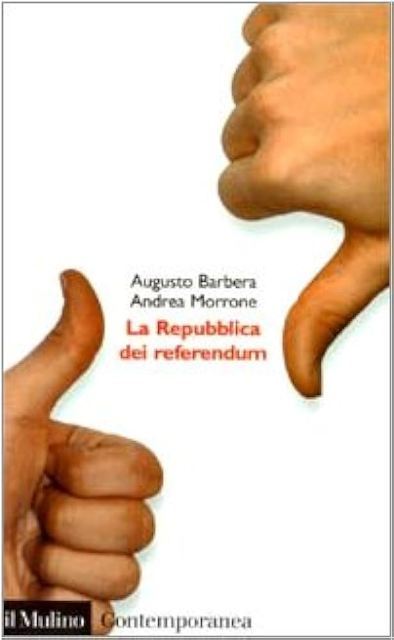
View On WordPress
#1991#1992#comunista#DC#Elena Pattaro#elezioni#formula#Francesco Cossiga#Giulio Andreotti#Gladio#governo#istituzionali#Lega#PCI#pentapartitica#PLI#presidente#PSI#referendum#Repubblica#Rifondazione#riforme
2 notes
·
View notes
Text
Il periodo storico della presidenza Cossiga si connota per l’entrata in crisi della formula pentapartitica
4.2.3. L’ultimo CossigaIl 9 giugno 1991, si tiene la consultazione referendaria sull’abrogazione della possibilità di esprimere la preferenza per più di un candidato, in occasione del quale prevalgono i voti a favore dell’introduzione della preferenza unica (vota “sì” il 95,6% dei cittadini e partecipa al voto il 62,5% degli aventi diritto), malgrado gli inviti di Bettino Craxi, Umberto Bossi e…
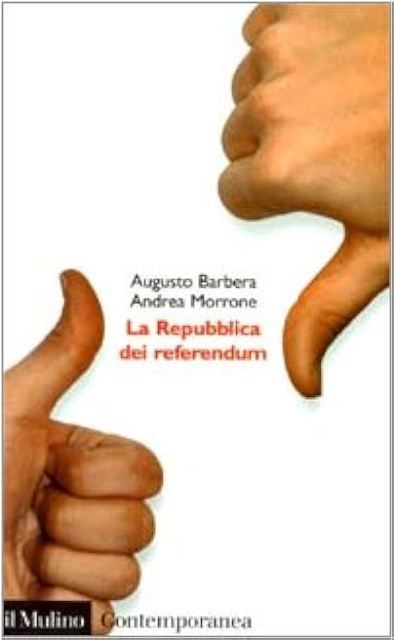
View On WordPress
#1991#1992#comunista#DC#Elena Pattaro#elezioni#formula#Francesco Cossiga#Giulio Andreotti#Gladio#governo#istituzionali#Lega#PCI#pentapartitica#PLI#presidente#PSI#referendum#Repubblica#Rifondazione#riforme
2 notes
·
View notes
Text
Il periodo storico della presidenza Cossiga si connota per l’entrata in crisi della formula pentapartitica
4.2.3. L’ultimo CossigaIl 9 giugno 1991, si tiene la consultazione referendaria sull’abrogazione della possibilità di esprimere la preferenza per più di un candidato, in occasione del quale prevalgono i voti a favore dell’introduzione della preferenza unica (vota “sì” il 95,6% dei cittadini e partecipa al voto il 62,5% degli aventi diritto), malgrado gli inviti di Bettino Craxi, Umberto Bossi e…
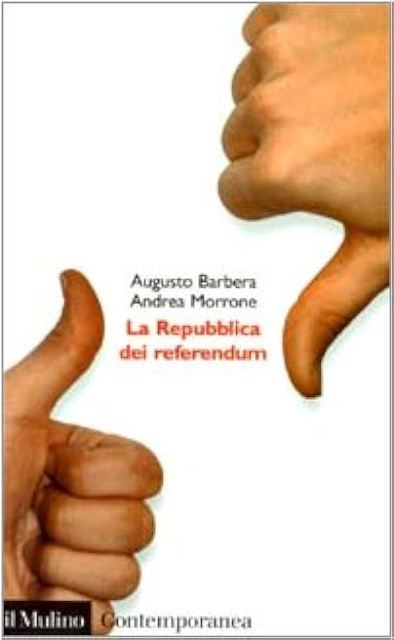
View On WordPress
#1991#1992#comunista#DC#Elena Pattaro#elezioni#formula#Francesco Cossiga#Giulio Andreotti#Gladio#governo#istituzionali#Lega#PCI#pentapartitica#PLI#presidente#PSI#referendum#Repubblica#Rifondazione#riforme
2 notes
·
View notes
Text
Il periodo storico della presidenza Cossiga si connota per l’entrata in crisi della formula pentapartitica
4.2.3. L’ultimo CossigaIl 9 giugno 1991, si tiene la consultazione referendaria sull’abrogazione della possibilità di esprimere la preferenza per più di un candidato, in occasione del quale prevalgono i voti a favore dell’introduzione della preferenza unica (vota “sì” il 95,6% dei cittadini e partecipa al voto il 62,5% degli aventi diritto), malgrado gli inviti di Bettino Craxi, Umberto Bossi e…
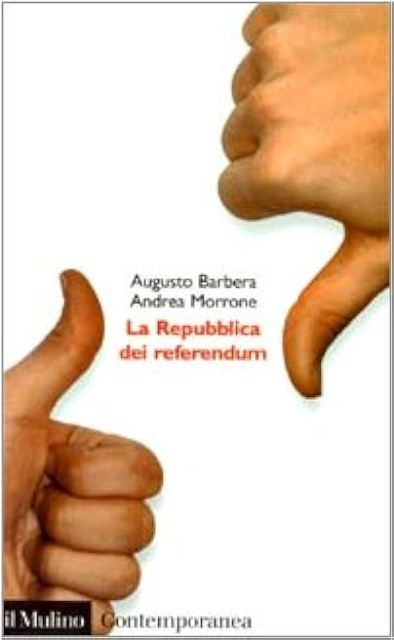
View On WordPress
#1991#1992#comunista#DC#Elena Pattaro#elezioni#formula#Francesco Cossiga#Giulio Andreotti#Gladio#governo#istituzionali#Lega#PCI#pentapartitica#PLI#presidente#PSI#referendum#Repubblica#Rifondazione#riforme
2 notes
·
View notes
Text
Se insegni a mangiar merda, non lamentarti che a qualcuno piaccia Putin
Leggo in un articolo di Stefano Cappellini:
«Stavo per scrivere Solgenitsin, ma non è il dissidente giusto. Mi sono ricordato cosa si diceva e scriveva, in certi ambienti, dello scrittore russo che si opponeva all'Urss: "È un reazionario! Un nazionalista!". Vi ricorda qualcosa? Esattamente quello che dicono oggi in tanti di Navalny, che in fondo un po' di gulag se lo meritava pure.»
E va beh qua ormai se scrivi qualche cosa devi per forza dire che Hamas non ti sta simpatica e che nemmeno Putin e... e... e... però c'è in giro gente che si rifiuta di dire che è antifascista "e le foibe?".
Però se uno dice che Navalny era un nazi non vuol dire che la miglior maniera per occuparsene fosse spedirlo in un gulag. Per dire, potendo, Breivik è in un carcere che a confronto dei nostri sembra un albergo. Pure da noi Licio Gelli ha scontato la sua pena detentiva nella sua Villa e Fiore non l'ha mai scontata.
Non vuol dire nemmeno che sia cosa buona e giusta gestire uno stato a suon di omicidi politici.
Però Navalny condivideva gran parte della retorica con Putin e con Salvini in maniera anche più estremista.
Solzenicyn vogliamo anche ricordarlo come ispiratore di Putin... (a detta pure dei "dissidenti russi").
Ma d'altronde pure noi potremmo ricordarci quando eravamo noi a lodare Putin come il traghettatore della Russia al capitalismo.
E niente... a furia di dire palle... "e le foibe?" e... e... e... ti trovi i fascisti al governo. Qui o in Russia... poco importa quando stai "esportando democrazia".
4 notes
·
View notes
Text
“ Nella Repubblica di Platone vi è un passo assai divertente sull'origine del mercato, che il mio allievo Jacques Brunschwig di recente mi ricordava: chi è che si limita al mercato? L'uomo che non è abbastanza forte per correre, e si siede dunque nella agorà, aspettando che i clienti vadano da lui. Comportarsi cosí va bene per chi non è capace di attività fisica. Ed è grande, in Platone, il disprezzo per l'economia delle persone sedute.
Occorre tener conto di sentimenti piuttosto complessi, per comprendere la posizione di Socrate, nella quale, secondo Senofonte, si trovano due atteggiamenti che paiono contraddirsi. A un concittadino presso il quale erano venute a rifugiarsi, durante l'assedio di Atene, una gran quantità di cugine e di zie che abitavano al di là delle mura, bocche inutili ch'egli non sapeva come sfamare, Socrate consigliava di aprire bottega e farvi lavorare le donne, citando l'esempio di un certo numero di persone stimate che, per mantenere la famiglia, fanno chi tuniche, chi mantelli, chi pane. Socrate trova dunque cosa del tutto normale che si commercializzi un'attività domestica del genere, mentre si adombra quando vede che i sofisti, personaggi prestigiosi e itineranti come i grandi artigiani del passato, tentano di commercializzare un'attività spirituale con l'insegnamento retribuito. È questa una contrapposizione che è stata sottolineata di recente dal spio collega ed amico Raymond Ruyer * in un articolo dove mostra la differenza esistente fra quella ch'egli chiama la nutrizione fisica e la nutrizione psichica: i beni che riguardano la nutrizione fisica possono essere fatti oggetto di commercio, ma le idee sono gratuitamente prodotte, trasmesse e condivise, e considerate tali da non doversi fare oggetto di traffico. “
* La nutrition psychique et l'économie, in «Cahiers de l'Institut de science économique appliquée», 55, serie M, n. I, maggio-dicembre 1957, pp. 4-15.
---------
Brano tratto dall’articolo di Pierre-Maxime Schuhl Perché l’antichità classica non ha conosciuto il « macchinismo »? pubblicato nel 1962 sulla rivista «De Homine» (fasc. 2-3), quindi raccolto in appendice al saggio:
Alexandre Koyré, Dal mondo del pressappoco all'universo della precisione. Tecniche, strumenti e filosofia dal mondo classico alla rivoluzione scientifica, introduzione e traduzione di Paola Zambelli, Einaudi (collana Nuovo Politecnico n° 12), 1967.
[1ª Edizione originale: Parigi, 1961]
#Repubblica#Platone#mercato#economia#saggistica#libri#Pierre-Maxime Schuhl#Socrate#filosofi#filosofia#schiavitù#progresso tecnologico#artigiani#lavoro#commercio#letture#antichità classica#istruzione#cultura#macchinismo#leggere#Alexandre Koyré#tecnologia#automazione#macchine#saggi#scritti saggistici#schiavismo#Jacques Brunschwig#scienze
14 notes
·
View notes
Text
I commenti, quelli belli.
"Luca Romano"
Cara Giulia cosa, ok che hai 11 anni e quindi ci sta che ti manchi ancora un po’ di cultura, ma permettimi di spiegarti due cose, senza paternalismo.
1. Chiara Ferragni fa il cazzo che le pare. Il messaggio non è che “devi” spogliarti - certamente non a 11 anni: lo apprezzano solo in Vaticano: è che se vuoi farlo, devi essere libera di farlo. A te non deve fregare una fava di quello che fa Chiara Ferragni: nessuno ti obbliga a prendere lei come role-model, non mancano le donne valide in altri ambiti, che siano la scienza (Gianotti, Cattaneo, Capua) o la politica (Sanna ❤️).
L’idea secondo cui qualcuno che fa qualcosa che non approvi ti stia in qualche modo obbligando a farlo a tua volta è un’idea della minchia, che probabilmente ti è stata introiettata dal tuo babbo leghista.
E, visto che hai 11 anni, è opportuno che tu lo capisca il prima possibile, perché altrimenti c’è il serio rischio che tu tra un po’ ti metta a dire che se due persone dello sesso si sposano ti stanno imponendo l’ideologia gender, e quello è poi l’inizio di una spirale che prosegue quando ti metti a sostenere che l’adozione della carne coltivata sarebbe una minaccia alla tua libertà, manco te la infilassero a forza giù per il gozzo, e prima che tu te ne renda conto ti ritrovi a emettere urla isteriche mentre sfasci zucche con una mazza da baseball in TV, strillando che ti vogliono imporre di festeggiare Halloween. Fidati che spogliarsi è molto più dignitoso che fare quella fine.
2. Magari in quanto giovane campionessa di equitazione hai già girato il mondo più di me, e quindi sai qualcosa che io non so, ma trovo giusto informarti che, ad oggi, non mi è noto alcun paese al mondo dove le donne sono obbligate a spogliarsi.
Ne conosco invece diversi dove le donne sono obbligate a coprirsi. E sono piuttosto sicuro che non vorresti abitarci neanche tu.
3. Nell’eventualità che tu tra qualche anno (almeno sette, per favore) scopra che spogliarsi in fondo potrebbe piacerti, sappi che c’è chi lo fa molto meglio di Chiara Ferragni. Da Dita von Teese a Valentina Nappi.
Dovesse mai arrivare quel giorno, scoprirai anche che il modo più squallido per farsi notare non è quello di spogliarsi: è quello di fare clic sulle opinioni di una ragazzina di 11 anni scrivendo per La Repubblica.
Cordiali saluti. -Luca
... ma indovinate? Hanno chiuso il profilo della ragazzina.
Guai criticare la pochezza di certe persone.

8 notes
·
View notes